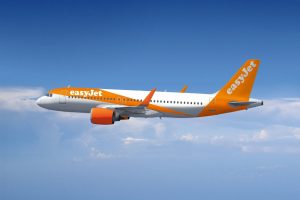Flybe reports annual losses of nearly £36m

AIRLINE Flybe has reported annual loss of £35.6m before tax, blaming “legacy issues” for the situation.
Nevertheless, Flybe, the largest airline in terms of passenger volumes at Birmingham and Manchester airports, said progress had been made despite the environment being more challenging than expected.
The company said that the latest set of results, covering the year to March 31, 2015, represented the first full financial year of its three year transformation plan and the focus during the year had been on resolving legacy issues and laying the foundations for profitable growth.
It claimed it was making significant progress on both fronts and that the business was now returning to revenue and capacity growth as it looked to move forward.
The year saw a 3.3% increase in Passenger Revenue per Seat to £51.35 (2013/14: £49.70) and there was a 5.7percentage points increase in Load Factor to 75.2% (2013/14: 69.5%), an annual all-time high.
The airline flew 7.7m passengers, in line with the previous year, nevertheless there was a 7.5% reduction in group revenue to £574.1m (2013/14: £620.5m), as a result of reduction in charter flying and a planned reduction in capacity of 7.6%.
During the year it delivered £27m of incremental gross cost savings, which was on top of the £47m reduction achieved in 2013/14. The cumulative gross savings over two years of £74m is £3m ahead of the target it set in November 2013.
The reported pre-tax loss of £35.6m included £12m due to the discontinued operations of its Finnish joint venture.
Looking ahead, it said cost saving from its restructuring and aeroplane purchasing deals. Together with a stronger balance sheet meant it was more optimistic for the current year.
It said it had also resolved nearly all of the company’s legacy issues. It completed its cost restructuring and improved aircraft utilisation by 13% through improved schedule planning and design and more effective crewing and rostering.
It also exited, without any penalties, the $892m obligation to buy 24 additional E175 jets from Embraer with a simultaneous agreement to secure attractively priced turbo-prop Q400s.
It also signed a landmark deal with Bombardier to upgrade the reliability of its 45 Q400 aircraft and found solutions for seven of its 14 surplus E195 jets. Further work is ongoing to divest the remaining seven E195 jets.
It said it had driven unit revenue growth in its core UK business through investment in yield and improved commercial execution.
Capacity in the first quarter of the current year is up 13%, with 65% of capacity already sold, which is below last year but mainly due to the shift in the dates for Easter.
Summer trading is said to be on track with the additional capacity selling through as planned.
Saad Hammad, Flybe chief executive, said: “We have just completed the first full financial year of our three year transformation plan. Despite a more challenging environment than anticipated, significant progress has been made. Flybe is back on track to recovery and profitable growth.”









